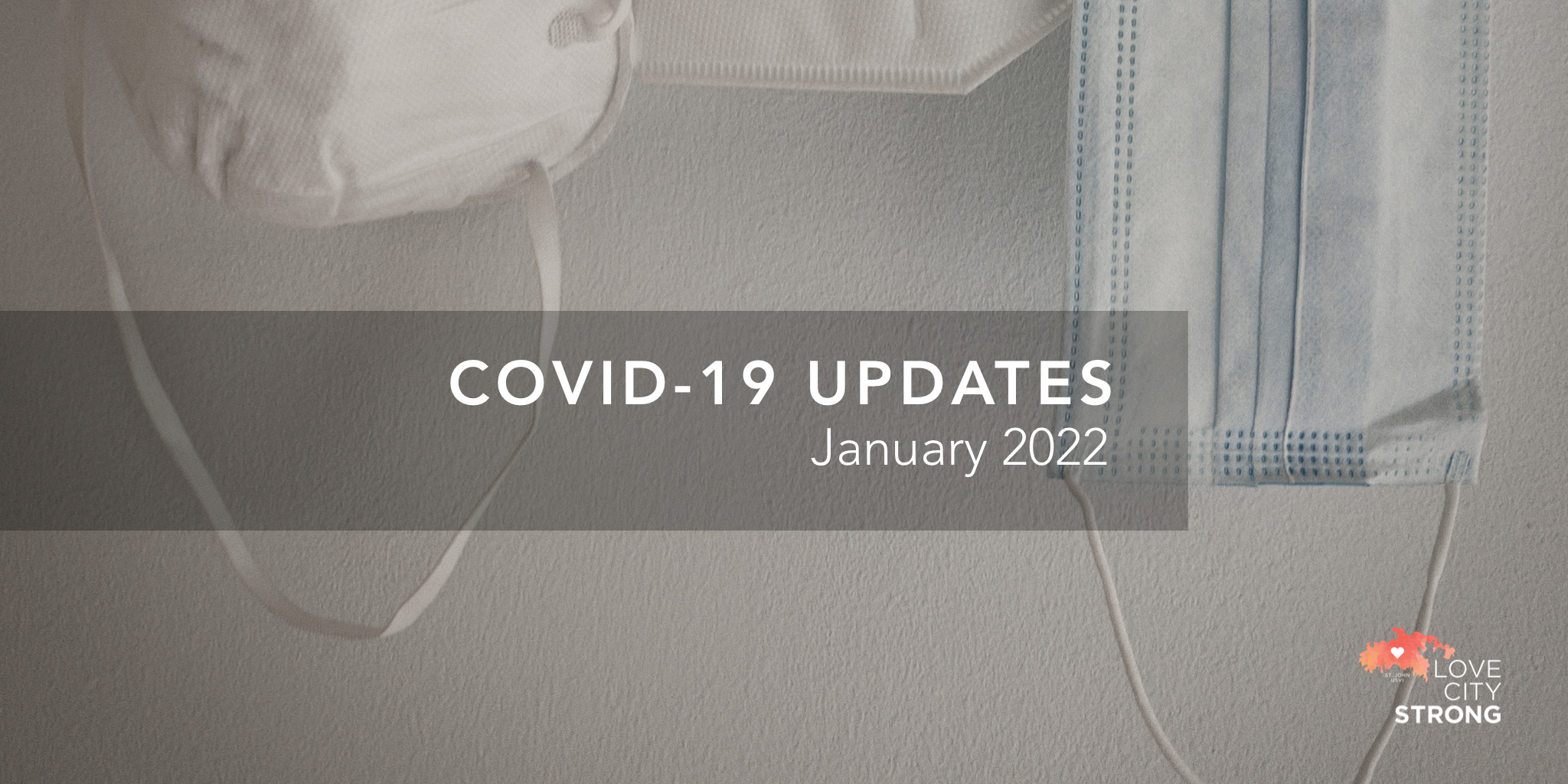Updated COVID-19 Guidance in USVI

Over the past month, the Territory has seen a remarkable and alarming increase in COVID-19 cases. While there are breakthrough cases among the vaccinated and even the vaccinated and boosted, evidence continues to show that the risk of severe illness, hospitalization, and death are significantly decreased in the vaccinated and boosted population.
One of the critical factors in this new wave is the presumed presence of the Omicron variant in the Territory. New information about the Omicron variant has led the CDC, and the Government of the Virgin Islands, to issue new guidance. In this post we’ll review updated masking protocols, updated quarantine guidance, and updated regulations and resources in the Territory.
Masks
One of the most important facts about the Omicron variant is its transmissibility– it spreads at least three times faster than the Delta variant. One infectious COVID positive person can be expected to infect three other people, on average. In an article by NPR, Dr. Robert Wachter, chair of the Department of Medicine at the University of California, San Francisco, says “It’s very contagious, and the kind of encounter that you could have had with prior versions of the virus that would have left you uninfected, there’s now a good chance that you will get infected from it.”
Preliminary data suggests that patients infected with the Omicron variant may expel more virus particles than patients infected with earlier variants, and that those virus particles may linger in the air in indoor environments for much longer than earlier variants. For these reasons, cloth masks that have served many people well until this point may no longer provide adequate protection.
Experts recommend that you upgrade your mask to a high-filtration option like N95, KN95, or KF94 respirator masks. These are all made out of material with an electrostatic charge, which actually pulls virus particles in and prevents you from inhaling them. Surgical masks also have an electrostatic charge, but their looser fit makes them less effective against something as infectious as the Omicron variant.
When considering when to wear your mask, it’s best to err on the side of caution. It remains important (and often mandated) to wear a mask on public transit and in indoor public spaces. However, it may also be wise to mask up when gathering indoors with small groups of family and friends outside of your social bubble, unless everyone is vaccinated and boosted. This is especially important if anyone attending is considered high risk.
Quarantine
You have likely heard that the Centers for Disease Control and Prevention (CDC) updated their guidelines on quarantine and isolation on Monday, December 27th.
Per the new recommendations:
- The recommended time for isolation for people with COVID-19, IF ASYMPTOMATIC, is shortened from 10 days to 5 days, followed by 5 days of masking around others.
- Therefore, people who test positive should isolate for 5 days and, if asymptomatic at that time, they may leave isolation if they can continue to mask for 5 days to minimize the risk of infecting others.
- You should continue to isolate as long as you are symptomatic.
- If you know that you have been exposed to a COVID positive case, the quarantine requirement has been updated as well
- If you are unvaccinated or more than six months out from an mRNA vaccine (or more than two months out from the Johnson & Johnson vaccine) and not yet boosted, the CDC recommends quarantine for five days followed by strict mask wearing for five more days.
- Individuals who have been vaccinated and boosted do not need to quarantine, but should adhere to a strict mask-wearing policy for the next ten days, ensuring that their mask is well-fitting.
- For all those exposed, the best practice is to test for COVID-19 at day five after exposure.
The big takeaway here is that all updated guidance is predicated on stringent adherence to masking in public and around any other people at an indoor gathering.
Updated Regulations and Resources in the USVI
Due to the rapid increase in cases in the Territory, there have been a few updates to the public health policy. According to Government House, here are several things you should know:
- All GVI agency heads are authorized to allow government workers who can work remotely to do so from December 28th, 2021 until January 10th, 2022. In-person services during this period will be limited. Please be patient and understanding as you go about your business.
- Bar, restaurants, and nightclubs are ordered closed at midnight, and the last call for alcohol will be 11 pm. This will continue until January 10th, 2022.
- Planned Crucian Christmas Festival events on January 4th, 5th, and 6th are cancelled.
- Beginning on Monday, January 3rd, ALL travelers into the Territory will be required to submit a negative test taken within 72 hours prior to travel, whether vaccinated or not, including persons vaccinated in the USVI.
The mask mandate continues in the USVI, as it has for the duration of the pandemic. If you’re visiting the Territory, please be respectful of this requirement, and of the businesses and staff who enforce it.
Both residents and visitors should pay close attention to announcements from the passenger ferry companies, as they frequently adjust their capacity in response to external environmental factors, including COVID-19 case spikes. Currently the ferries are operating at reduced capacity in order to facilitate social distancing. Please remember to arrive at the ferry terminals early, as the boats will fill quickly at limited capacity.
Up to date testing information, including locations, days and times, are available online at https://www.covid19.usvi.care/
